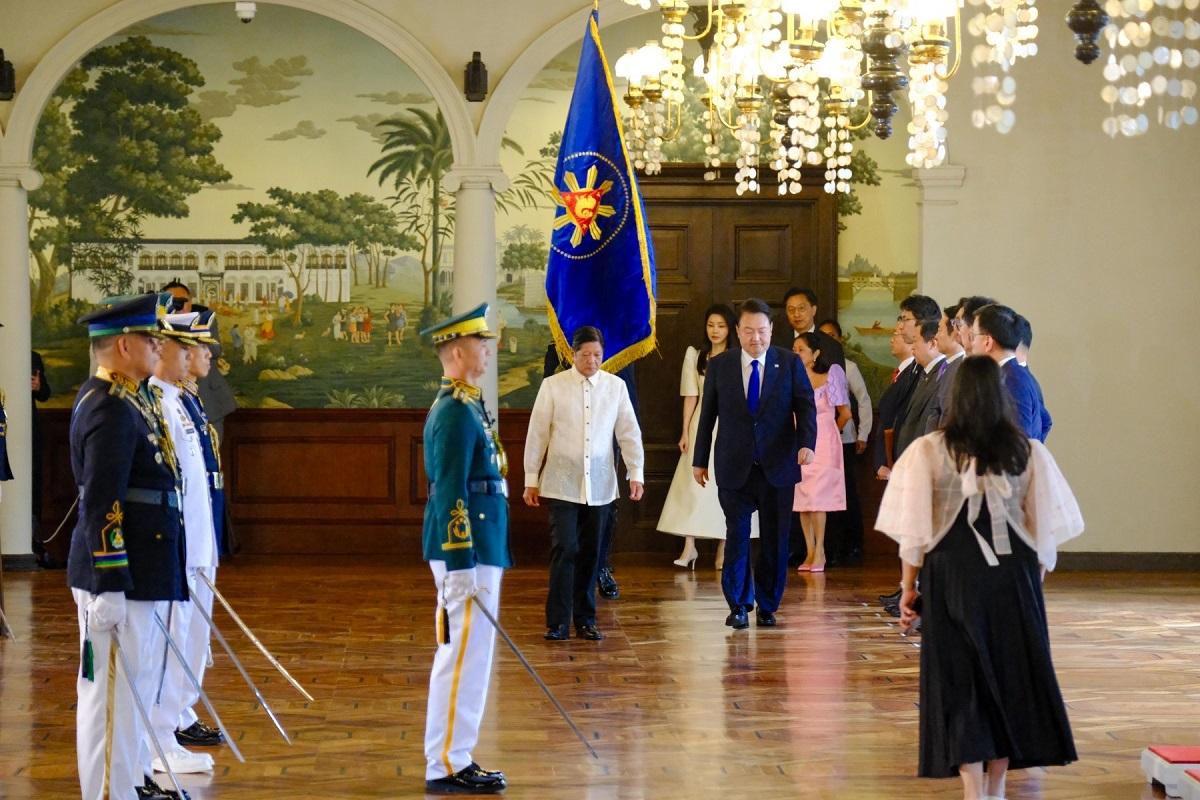PH, South Korea ink deal on feasibility study for Bataan Nuclear Power Plant

The Philippines and South Korea have signed an agreement that pushes for a feasibility study about the Bataan Nuclear Power Plant (BNPP).
President Ferdinand ''Bongbong'' Marcos Jr. and South Korean President Yoon Suk Yeol witnessed the presentation of the signed agreements during the latter's visit at the Malacañang Palace.
Marcos continues to be hopeful as regards the BNPP, a project during his late father Ferdinand Marcos Sr.'s administration that has been mothballed for more than three decades.
''In view of the Republic of Korea’s successful experience in the nuclear industry, we have also signed the Memorandum of Understanding on the Feasibility Study of Bataan Nuclear Power Plant (BNPP),'' Marcos said.
''This will carry out a thorough feasibility study to continue progress on the BNPP Rehabilitation, which we envision to contribute to energy security in the country,'' he added.
For his part, Yoon cited the significance of nuclear power plant as a ''carbon-free energy source.''
''We took note of the importance of nuclear power as a carbon-free energy source and agreed to lay the foundation for nuclear energy cooperation building on the conclusion of MOU on feasibility study for the Bataan Nuclear Power Plant,'' Yoon said.
In 2023, South Korea already expressed interest in participating in a joint feasibility study on the BNPP.
Since the start of his presidency, Marcos has been vocal on his desire to adopt nuclear energy as part of the country's energy source.
To recall, it was in 1976 when the elder Marcos ordered the construction of the $2.3-billion BNPP. However, the project was shelved after three years due to safety concerns.
What's inside the MOU?
The Department of Energy said the MOU was designed to generate critical information to guide the Philippine government’s decision-making process, not only regarding the BNPP but also in exploring other nuclear technologies.
This will also help in looking for potential alternative sites for nuclear energy development, according to the DOE.
All costs associated with the feasibility study will be fully borne by the Korea Hydro & Nuclear Power Co., Ltd. (KHNP) while the Philippine government is under no legal obligation to proceed with the rehabilitation of the BNPP or to engage KHNP based on the study’s findings.
The Energy Department stressed that the study is exploratory in nature, and any subsequent actions will be subject to further evaluation and decision by the government.
The feasibility study is set to commence in January 2025 and this will be carried out in two phases.
The first phase will assess the current condition of the BNPP and its components while the second phase will evaluate whether the plant can be refurbished using the most optimal model, the DOE said.
If the findings from the first phase determine that proceeding to the next phase is not advisable, the KHNP may recommend alternative options, including the construction of a conventional plant or the development of a small modular reactor.— RSJ/RF, GMA Integrated News




